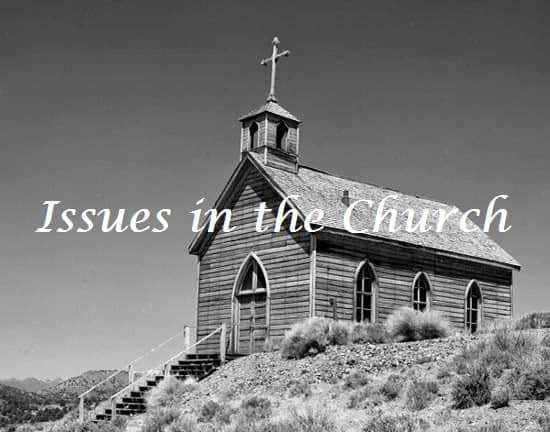⏱️ Estimated Reading Time: 4 min read
Editor’s note: The purpose of this series is to write on “Issues in the Church” that either aren’t talked about, ignored entirely, or that we want to contribute to the discussion on. Our goal with this series is to help our readers think through these issues from a biblical worldview with lots of practical gospel-application.
- Read the rest of the series here.
**************************************************
Philadelphia is well-known as the city of “brotherly love.” But before early Colonialists planted that city, the apostles Paul, Peter, and the author of Hebrews used the word philadelphia to speak of the way fellow Christians should love one another.
What does brotherly love mean? Romans 12:10 speaks plainly, “Love one another with brotherly affection” (philadelphias). But how do we do that? By looking at the six uses of the word in the New Testament, we learn that brotherly love protects one anothers purity, provides for one another’s needs, and endures in both of these ennobling graces.
Today we’ll consider the purity of brotherly affection.
Purity
It is an egregious sin for a brother to ravage his sister. As evidenced in the story of Amnon and Tamar (2 Samuel 13), when such incestual infidelity occurs, it results in generations of pain and revenge. By God’s design, brothers are to protect their sisters from the wanton pursuits of other young men. Never should a brother take advantage of his sister.
Likewise, older brothers protect their younger siblings from the assaults of others. The older brother who turns a blind eye to the cries of his kin fails his father on earth and his father in heaven.
So it is in the family of faith. We are called to stick up for one another and protect one another, especially the sexual purity of one another.
Twice philadelphia is found in the context of sexual purity (1 Thess 4:9; 1 Peter 1:22). In 1 Thessalonians, Paul commends the Thessalonians for their philadelphia (4:9). He says, “Now concerning brotherly love you have no need for anyone to write to you, for you yourselves have been taught by God to love one another.”
In recognizing the Thessalonians love for one another, he reinforces what he just said about sexual purity (see vv. 3–8). Sexual immorality corrupts brotherly love, because it disregards the natural boundaries established in the family (see Leviticus 18). Every time a Christian acts on his lust, he fails to act as a faithful sibling. As Paul says to Timothy, a younger bachelor, “treat younger women with absolute purity, as sisters” (1 Tim 5:1).
The same is true for men and women who are attracted to members of the same sex. Loving one another with brotherly affection is a call to purity and holiness. It reminds us that just as nuclear families are torn apart by sexual abuse, the family of God is eviscerated when its members pursue illicit sexual relationships—with one another or with an unbeliever (cf. 2 Cor 6:14–7:1).
In 1 Peter 1:22, the admonition towards sexual purity is also in view. Peter writes, “Having purified you souls by your obedience to the truth for a sincere brotherly love, love another earnestly from a pure heart.” In this verse Peter tells us that faith (“obedience to the truth”) purifies us (cf. 1 John 1:9), but Peter also explains that such purity places us in the family of God.
“For a sincere brotherly love” is a statement of purpose; God’s purpose is for us to be holy and familial. Christ died to removes us from the impurity of the world and establishes us in his holy family. In his family we are not to be impure, but to “love one another from a pure heart.” For this reason, Peter says later to add brotherly affection to godliness and love to brotherly affection (2 Pet 1:7).
In the church, love depends on seeing one another as brothers and sisters, mothers and fathers, sons and daughters. Spiritually-speaking, this is how God sees us; practically-speaking, our perception of the church as God’s family protects us from the passions that tempt us from within and without.
When we love one another with brotherly affection, we protect and serve one another. We refuse to take advantage of one another. And in this the body of Christ is built up and purified.
This post first appeared at David’s blog and is posted here with permission.



